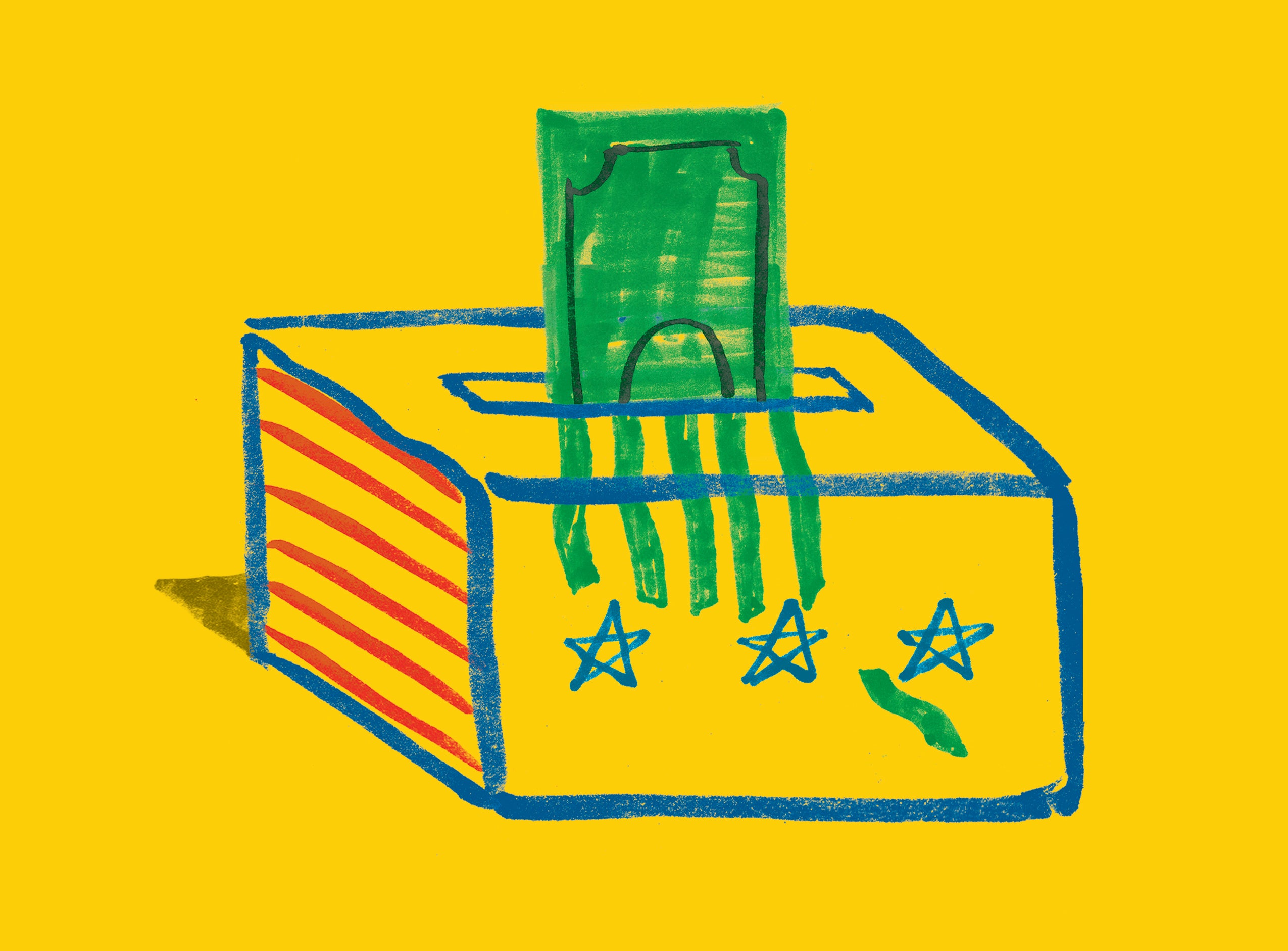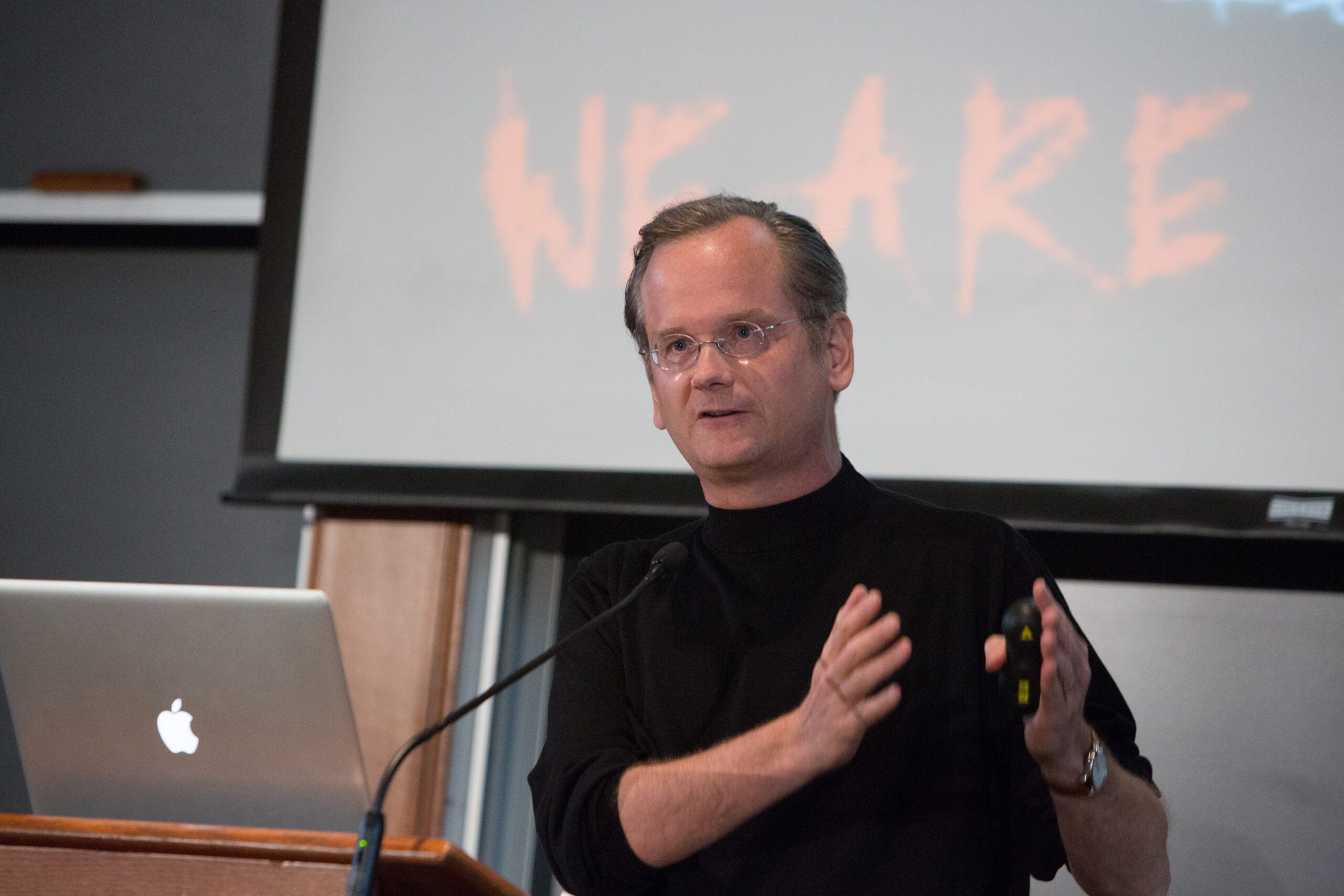
In 2011, Lawrence Lessig wrote “Republic, Lost: How Money Corrupts Congress—and a Plan to Stop It,” a book arguing that the ever-present need to fund political campaigns serves well-heeled funders and not the public interest. Now the Roy L. Furman Professor of Law and director of the Edmond J. Safra Center for Ethics at Harvard University has become an activist. And he is taking on the system he critiqued with a bold effort to appropriate what he sees as one of its corrupting forces.
This year Lessig launched the Mayday PAC, a super PAC designed “to end all super PACs,” as he has described it. As of the writing of this article, Mayday had collected more than $10 million in donations in order to support candidates in up to eight races this year who have pledged to reform the campaign finance system. That includes eliminating super PACs themselves, which can raise and spend unlimited money to support political candidates. It is a precursor to a much larger effort planned for 2016 to elect a majority in Congress who will support reform of campaign funding.w
Lessig acknowledges the irony of raising money through a means he would like to abolish but says there was no better alternative than working within the current system to change it.
“I don’t feel guilt about using a system that predominantly benefits the extremely wealthy in order to create a system that’s balanced in its representation of the poor and the rich,” he says.
The fundamental problem, according to Lessig, is that politicians now spend 30 to 70 percent of their time raising money from a small slice of the wealthiest donors. This leads to a “perpetual campaign” that compels politicians to vilify the other side and polarize the public, he says. Though some contend that money does not buy influence, he points to studies that confirm that the government is more responsive to donors’ wishes than the voters’.
To replace the current system, the organization advocates “small dollar public funding,” which could be in the form of vouchers provided to voters to support candidates of their choice. It would dramatically expand people’s participation in campaigns and motivate those in power to address grass-roots concerns, Lessig believes.
He says the cause is nonpartisan, and Mayday is offering support to candidates regardless of party. Even though most Republican politicians don’t support campaign finance reform, polls show that a majority of both Republican and Democratic voters share concern over the influence of money in politics and the issue of corruption, he notes. The question is whether that concern will translate into support for candidates who make the issue a priority.
“What we’re trying to do is find a way to leverage the actual strong support for reform into people taking the steps to vote,” Lessig says. “People haven’t tried it before because it defies the conventional wisdom. We’re trying to break the conventional wisdom.”
Lessig began to focus on campaign finance reform only recently. He says he was influenced by his friend Internet activist Aaron Swartz, an advocate for free access to online information, who committed suicide in 2013 when he was faced with federal criminal charges of illegally downloading academic journal articles without paying for them. In 2007, Swartz convinced him there was no way to make progress on policy issues, including the Internet issues the two of them were working on, until something was done about corruption.
At one time, Lessig considered pursuing that fight with a run for Congress. He decided against it and says he has a better opportunity to “spread the gospel” as an outsider than as an insider. He is spreading the word far and wide, with coverage in The New York Times, The New Yorker and The Washington Post, among many other outlets. The effort has been exhausting, he says, and decidedly different for a legal scholar and teacher.
“The life of an academic is a life of incredible confidence and security,” he says. “I’ve kind of thrown myself into a place where there’s no confidence and no security and it’s easy to be proved wrong. If this whole thing turns out to be a failure, it will be personally quite difficult.”
But if it is a success and helps change the way elections are funded, citizens will feel more confident participating in what their government is doing, he says. And for Lessig, that would be a gift money can’t buy.
